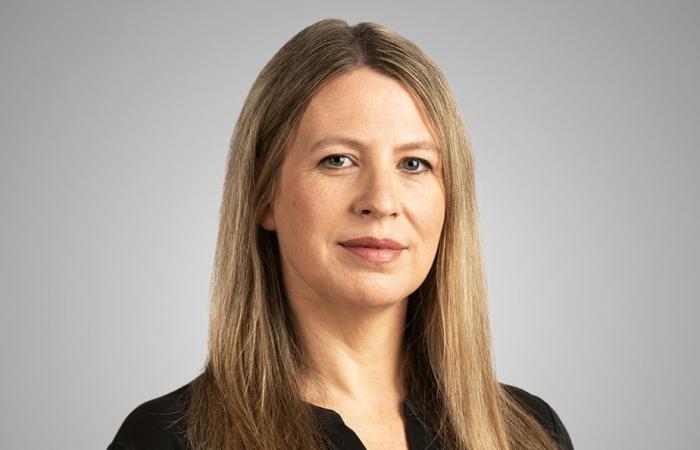The reading of a novel by Michel Jean challenged by a CEGEP student because the book evokes a rape and suicide in a native residential school. Teacher accused of racism after claiming countries in Africa were poorer than those in North America. A teacher called a “frustrated” woman for putting feminist works on the curriculum…
Published at 5:00 a.m.
These are some of the distressing conflicts that have erupted in CEGEP classes in recent months across the four corners of Quebec. They were unveiled last week by the Federation of Collegial Education (FEC-CSQ). Faced with the increase in these incidents, the union is calling on the government to act to better ensure the freedom of college education.
That CEGEP students are offended by certain content is certainly discouraging, but we cannot say that it is very surprising. The big question is what happens next. Are these students filing complaints? Are teachers censored? Are they, on the contrary, supported by their management?
To ensure that everything goes well, should the CAQ government extend the application of the Law on academic freedom in academiaas demanded by the FEC-CSQ?
This law was adopted by the National Assembly in 2022, following the Lieutenant-Duval affair at the University of Ottawa. It only protects university professors. However, since this affair, any CEGEP teacher knows that they too risk getting into serious trouble if they dare to pronounce the “word starting with an N” in class, even if only to explain a concept or present a work.
Any Quebec teacher knows too well that at CEGEP as at university, classrooms can quickly turn into minefields.
Just like universities, CEGEPs are not immune to radicalization or the divisive debates that tear the rest of society apart. “When we bring these debates into class, we see that students are more and more sensitive,” a teacher, who requested anonymity for fear of reprisals from her CEGEP, told me. “We are going to watch the documentary Alphas in class and I feel like I need to prepare for any eventuality…”
Contrary to what one might imagine, the blows to academic freedom do not all come from the big bad woke wolf. “There are teachers who are called woke by students! “, drops the teacher, recalling that a colleague was described as “frustrated” for having proposed feminist works.
“The students are more demanding than before. They are also more sensitive. If we present a documentary on a tough subject, like prostitution, they come out much more upset than a few years ago,” notes a second teacher, who refuses to be named for the same reasons as the first. (It’s actually a real problem, this widespread fear of reprisals among CEGEP teachers; for freedom of expression, we’ll come back…)
The most demanding students make official complaints. “Some managements listen to them, others support the teachers,” says Sylvain Benoit, vice-president of the FEC-CSQ. It’s arbitrary, a bit crooked. » Extending the scope of the law to CEGEPs, he believes, would bring order to all that.
However, the government has no intention of reopening the law. “Let us be clear: educational establishments must be places of debate, and not of censorship,” wrote the Minister of Higher Education, Pascale Déry, on November 20 on X. As for CEGEPs, academic freedom is already protected in collective agreements. If teachers are faced with attempts at censorship, the levers are there and we invite them to use them. »
For the government, there is no urgency, or even reason to act. It must be said that, among the testimonies collected by the union, none mention a truly problematic situation, where the CEGEP would have restricted the freedom of teaching of a teacher by agreeing with a student.
The teacher who was the subject of a complaint for having given a novel by Michel Jean to read, for example, received the support of his management. Verushka Lieutenant-Duval was reprimanded by the University of Ottawa for pronouncing the “word starting with an N”. This is what makes the difference between a “case” and an anecdote.
The scandal is not that a CEGEP student is complaining, it is that an educational establishment is bending its back to their complaints, out of patronage.
Nevertheless, the government should already counter the blows, believes Sylvain Benoit. “We believe that we should not wait until there is a case like that of the University of Ottawa, because we feel the tension building. »
This tension means that CEGEP teachers are self-censoring more than ever. According to an FEC survey, half of them avoid certain words, themes or works for fear of being lynched on social networks — or simply to spare themselves painful discussions in class.
Thus, a teacher reported to the union that some students were questioning the effectiveness of vaccines or extolling the benefits of homeopathy. As it became complicated to prove to them that they were wrong, he and his colleagues preferred not to discuss these subjects anymore.
It’s serious, such a resignation. Especially if it becomes widespread within the profession.
“People censor themselves because they don’t want trouble. But the teacher must also take his share of risks,” underlines a third teacher, who has never hesitated to tackle shocking subjects in his philosophy class. You have to be consistent and accept criticism from students, he adds, if you truly believe in the free flow of ideas.
For this, of course, a teacher must feel that he will not be thrown to the stake at the first discomfort caused in class. “The key is to have the support of your management,” concludes the philosophy teacher. If we feel supported, it doesn’t take so much courage to teach Candide by Voltaire…”






